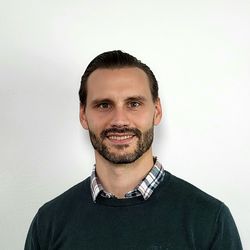Digital Technologies and nature-based Climate Protection in Municipalities (DiNaKom)
Cities and municipalities are feeling the effects of climate change, for example in the form of heat stress, water shortages and flooding. This damages buildings, infrastructure, health, and nature. Natural climate protection measures in cities are becoming increasingly important, as they make ecosystems and urban spaces more climate-resilient. When ecological objectives are addressed with digital technologies, we speak of a smart city – a concept that more and more municipalities want to implement.
The aim of the research project "Digital Technologies and nature-based Climate Protection in Municipalities", commissioned by the Federal Ministry for the Environment, Nature Conservation, Nuclear Safety and Consumer Protection, is to investigate the opportunities and challenges that digital technologies present for natural climate protection in cities. The focus is also on the potentially very diverse needs and obstacles of municipal actors. In a potential analysis, the researchers are working out what digital technologies can do for practical natural climate protection and for ecosystems. The project also examines possible barriers such as framework conditions, resources, knowledge, skills and local circumstances – for example, it is particularly challenging for small and financially weaker municipalities to provide the necessary digital infrastructure.
In addition, the project will develop solutions and recommendations for the Kompetenzzentrum für natürlichen Klimaschutz (Competence Center for Natural Climate Protection), which has been set up as a nationwide advisory and networking center since 2023. The project is looking at the stakeholder landscape at municipal level as well as relevant technology providers. Best practice examples from municipalities are to be incorporated into the analyses in order to develop practical implementation concepts. For the project, the IÖW is cooperating with the company Net Positive Cities, which advises cities on the development and implementation smart city strategies and projects.



